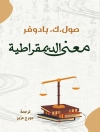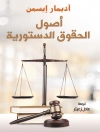‘Vulnerability’ is now a key term in globalisation studies. It is used to describe how globalisation impacts on individual security, local communities and even global flows of trade, finance and investment. Yet there has been little attempt to interrogate the term and what it is trying to express about globalisation.
Peadar Kirby examines what is really meant by ‘vulnerability’ and links it to new forms of violence that have resulted from decreased security and social cohesion. He argues that vulnerability and violence are characteristic features of a new world order dominated by neoliberal globalisation. Illustrating his argument with a wealth of examples taken from all over the world — from the sudden collapse of the middle class in Argentina to increased levels of poverty internationally — he offers a robust theoretical grounding that will be of use to anyone studying vulnerability and violence and their relation to contemporary globalisation.
Содержание
Preface
1. Globalisation, Vulnerability and Violence
Section I: Description
2. Risk’s New Riskiness
3. Coping with Risk
Section II: Diagnosis
4. The Political Economy of Globalisation
5. Globalisation’s Cultural Worlds
Section III: Interrogation
6. Society and Market
7. The Individual and Society (written with Toni Ryan)
Section IV: Remedies
8. ‘So What Should We Do?’
9. Contesting Globalisation
Bibliography
Index
Об авторе
Peadar Kirby is Emeritus Professor of International Politics and Public Policy at the University of Limerick. He is the author of Towards a Second Republic: Irish Politics after the Celtic Tiger (Pluto, 2011), Vulnerability and Violence: The Impact of Globalisation (Pluto, 2005), Celtic Tiger in Collapse (2010) and co-editor of Transforming Ireland (2009) and Reinventing Ireland: Culture, Society and the Global Economy (Pluto, 2002).












